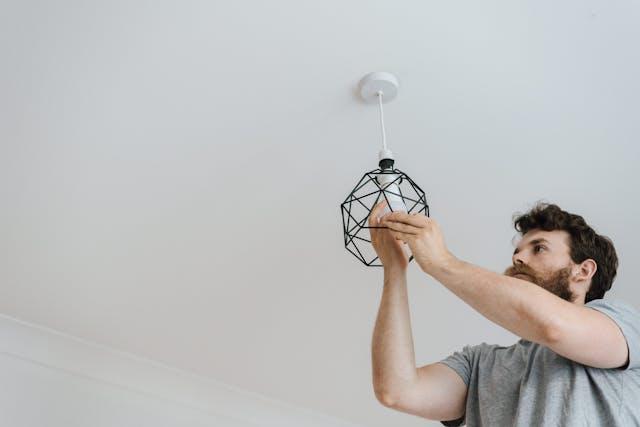Key Takeaways
- Assess and Prepare: Evaluate your property's market appeal and make necessary upgrades to attract quality tenants.
- Understand Legalities: Familiarize yourself with Indiana's landlord-tenant laws, including security deposit regulations and rent increase protocols, to avoid legal issues.
- Strategic Management: Implement thorough tenant screening and lease agreements, effective marketing, and consider professional property management to streamline operations and ensure compliance.
Thinking about selling your Lafayette, Indiana house to recover your investment? If the housing market isn't in your favor, consider a more strategic option: converting your house into a rental property. Renting out your house can help you generate consistent passive income while waiting for property values to rise.
However, becoming a landlord involves more than just putting up a "For Rent" sign. It requires careful planning, legal knowledge, and sometimes, professional assistance. Whether you're looking for long-term tenants or short-term guests, this guide will help you turn your house into a profitable rental property in Lafayette, Indiana.
Key Steps to Becoming a Successful Lafayette Landlord
1. Evaluate Your Property's Rental Appeal
Before listing your house, assess its attractiveness to potential renters. Is it conveniently located near Purdue University, major medical facilities, or bustling business districts? Properties close to educational institutions, employment centers, and entertainment venues typically attract more interest and can increase rental income.
If your rental property is in a desirable area, you might even consider furnishing it for short-term leases. This allows you to tap into the temporary housing market while keeping your options open for a future sale.

2. Understand Indiana's Landlord-Tenant Laws
Becoming a landlord comes with significant legal obligations beyond just collecting rent payments. Indiana state and local landlord tenant laws sets clear expectations for landlords, and non-compliance can lead to severe penalties.
Key legal requirements include:
- Providing safe and habitable housing.
- Ensuring plumbing, heating, and electrical systems are in good working order.
- Complying with all applicable building, health, and safety codes.
- Keeping all common areas clean and safe.
- Delivering the property free of pest infestations.
Additionally, rental property owners must provide tenants with "reasonable notice" before entering the rental unit, generally 24 hours, unless it's an emergency.
3. Comply with Indiana Security Deposit Regulations
While Indiana law doesn't cap the amount landlords can charge for a security deposit, there are strict rules for its return. Once a lease agreement ends, you have 45 days to return the deposit or provide a written, itemized explanation for any deductions. Acceptable reasons for withholding funds include:
- Unpaid rent and utilities.
- Damage resulting from a breach of lease or violation of law.
- Rent due from an early termination.
- Damage costs beyond normal wear and tear.
Failure to meet this deadline or provide proper documentation can result in legal penalties, including the tenant suing for the full deposit plus attorney’s fees.

4. Understand How and When to Raise Rent in Indiana
Indiana does not have rent control, giving landlords flexibility in setting rent prices. However, timing and communication are essential. If a lease agreement is still in effect, rent increases are only permissible if explicitly stated in the lease agreement.
For month-to-month tenancies, landlords must provide a minimum of 30 days' written notice before implementing any rent hike.
5. Prepare Your Home for Renters
To stand out in Lafayette’s competitive rental market and attract prospective tenants, your rental property should be clean, functional, and visually appealing.
A professional deep cleaning and minor upgrades, such as fresh paint, updated lighting fixtures, or modern hardware, can significantly enhance the appeal of your rental.
Ensure all appliances are in working order, safety measures like smoke detectors are installed, and locks are secure. These improvements not only attract high-quality tenants but also help justify a higher rent.

6. Promote Your Property Strategically
When renting out your house, effective marketing is vital for attracting reliable tenants that pay rent. Start with a well-written, engaging listing that highlights your property’s best features, such as:
- Off-street parking or a garage.
- In-unit laundry facilities.
- An updated kitchen with modern appliances.
- Ample storage space.
- Outdoor areas like patios, balconies, or fenced yards.
High-quality photos and even video tours can significantly boost your listing's performance across various rental platforms. While digital marketing is powerful, traditional methods like flyers at local businesses, word-of-mouth referrals, and neighborhood bulletin boards can also be effective in attracting tenants.
7. Conduct Thorough Tenant Screening
A robust tenant screening process protects your investment and ensures a smooth rental experience. At a minimum, screen applicants for:
- Steady income and employment.
- A solid credit history.
- Positive references from previous landlords.
- A reliable rental history.
Take the time to verify all information. Due diligence now can save you thousands later in unpaid rent, eviction costs, and property repairs.
Once you've selected your tenant, use a comprehensive rental lease agreement tailored to Indiana laws. Clearly outline rent payment terms, maintenance responsibilities, pet policies, and rules regarding subleasing in the lease.
8. Consider Professional Property Management
Managing a rental property can be time-consuming, especially if you have other commitments or reside outside Lafayette. A professional property management company can make a significant difference. Our experts at PMI Lafayette handle daily tasks such as:
- Creating effective rental listings and marketing campaigns.
- Screening applicants and managing leases.
- Coordinating maintenance and emergency repairs.
- Handling rent collection and late payments.
- Preparing financial statements.
9. Prioritize Compliance and Organization
Being a landlord is a business, and successfully renting out your house hinges on staying informed and organized.
Here’s how to keep everything running smoothly as a landlord:
- Schedule periodic inspections of your rental property to identify issues before they escalate.
- Stay updated on Indiana rental laws to avoid costly missteps.
- Maintain accurate records for expenses, property taxes, repairs, leases, and tenant communications.
- Foster open, respectful communication with tenants to minimize conflict and misunderstandings.
Taking these steps not only helps you maintain your rental income and stay profitable but also builds your reputation as a fair and responsible landlord.
Bottom line
Turning your Lafayette property into a rental can be a smart way to generate income, especially when the housing market isn’t ideal for selling. However, the key to success lies in knowing your legal responsibilities, maintaining the home properly, and marketing it to the right tenants.
For many landlords, the best move is hiring a trusted property management company. They can handle the complexities of rental operations, ensure full compliance with Indiana laws, and help your property perform at its best with minimal stress.
Ready to make the most of your investment? Contact PMI Lafayette today!


